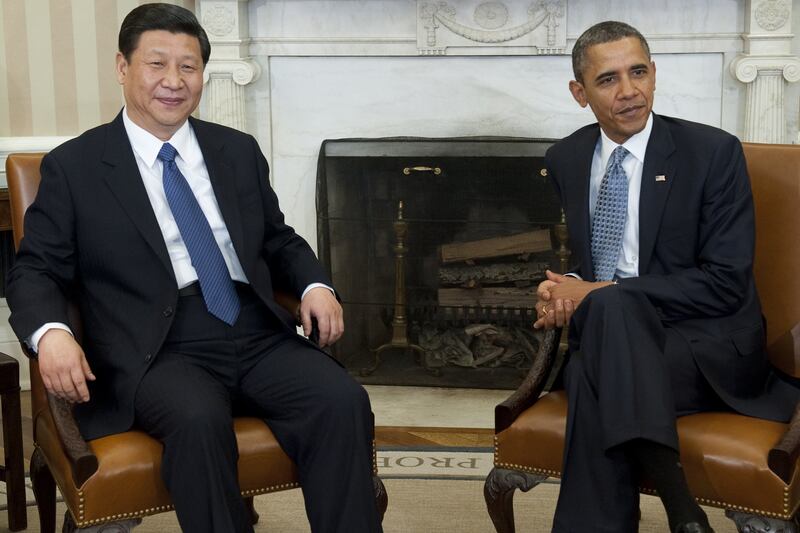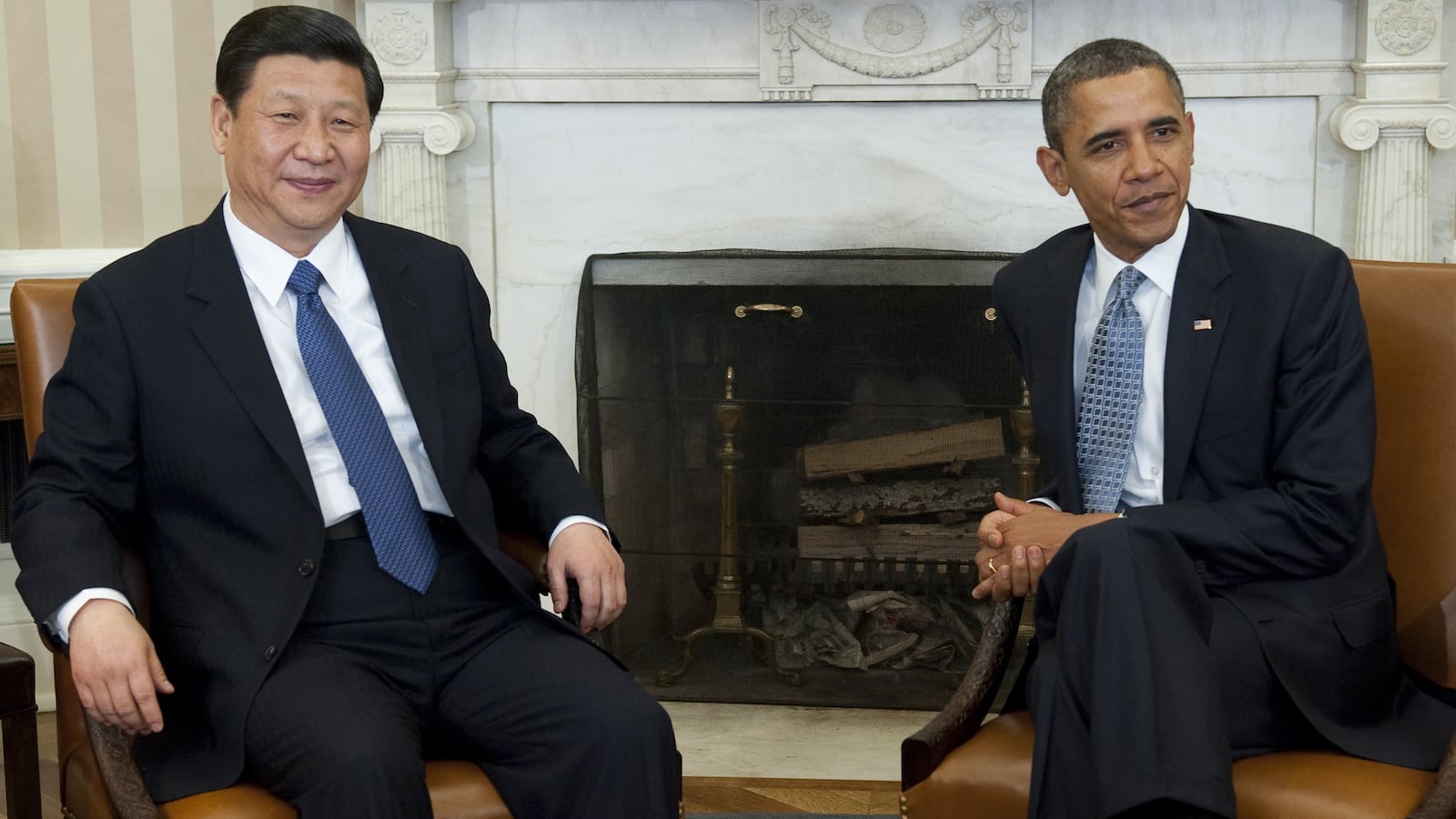President Obama will meet Xi Jinping, his Chinese counterpart, for two days of intensive talks today and tomorrow at the secluded Annenberg estate in Rancho Mirage, near Palm Springs, California. Expectations are high that the weekend discussions will reverse rising tensions and set the U.S. and China onto a cooperative path.

Why are the two leaders meeting in a desert resort? The concept is that the formalism of past summits has made meaningful conversation difficult. Administration officials believe the relaxed setting will help Obama and Xi develop a friendship—and that this friendship will lead to constructive relations between Washington and Beijing.
Since the early 1970s, the U.S. has talked to China in every conceivable format, formal and informal, bilateral and multilateral, secret and announced. Discussions have been held in Washington and Beijing and many places in between. There have been state visits, the Strategic and Economic Dialogues, and now this upcoming “shirtsleeves summit.” During the previous administration, the number of ongoing bilateral forums involving lover-level officials reached 50. Today, China watchers have lost count.
Yet as the interactions between American and Chinese officials have increased dramatically, ties between the two nations have only become more strained. That’s one indication that, despite what some may hope, Chinese leaders are not influenced by personal relations.
Why is that? For starters, China’s diplomats, officials, and rulers do not share general American notions of foreign policy. They are ruthlessly pragmatic. They respect strength and scorn weakness.
By now, the Obama administration should know this. From the get-go, the president wanted to establish good ties with Beijing. In February 2009, he had then-secretary of State Hillary Clinton say that the U.S. would downgrade human rights in its relations with China. She intended that as a signal of cooperation, but the Chinese saw the words as a sign of weakness. As one Beijing-based analyst reported, officials were “ecstatic” because her comments confirmed in their minds that America “had finally succumbed to a full kowtow” to China.
In the following month, the Chinese pressed their perceived advantage by harassing U.S. Navy reconnaissance vessels in international waters in the South China and Yellow Seas. The downward spiral in relations did not end until the administration, through a series of measured steps beginning the summer of 2010 and culminating in the “pivot” unveiled in November of the following year, indicated the limits of American patience. Beijing, fortunately, took its cue from Washington and soon moderated its behavior.
Unfortunately, however, China eventually reverted into a confrontational posture, evident in the middle of last year. The problem for the White House is that Beijing’s external policies now appear to be more driven by troubling internal trends than reactions to signals from Washington and other capitals. For one thing, the Chinese economy, after 35 years of virtually uninterrupted expansion, is faltering. Growth of gross domestic product, for example, could be a third to a half of what Beijing publicly reports.
This has foreign-policy consequences because, without prosperity, the only remaining basis of the Communist Party’s legitimacy is nationalism. China’s militant nationalism is now causing border friction in an arc from India in the south to South Korea in the north. At the same time, China is taking on the U.S. by trying to close off the South China Sea in what is the biggest attempted grab of territory since the end of World War II, and the Chinese have upped the stakes by intensifying their cybercampaign against not only the Pentagon and defense contractors but also other corporations and, more important, the institutions of a free society—the press, foundations, charities, NGOs, and advocacy groups.
While the Chinese economy stumbles, the political system is fraying, jolted by the infighting accompanying the transition from Hu Jintao’s Fourth Generation of leaders to Xi Jinping’s Fifth. Obama administration officials, as reported in The New York Times and The Wall Street Journal in the past several days, believe Xi has asserted control over the Communist Party apparatus and military much faster than anticipated, but there is only scant evidence suggesting that is, in fact, the case. On the other hand, the failure to bring to trial the controversial Bo Xilai, once China’s most openly ambitious politician, indicates that the dangerous disputes among the Communist Party’s factions remain unresolved. The discord among civilians has resulted in the People’s Liberation Army gaining influence, and the top brass may now be the most powerful group in Beijing politics these days. This worrisome trend suggests Chinese policies will become even more confrontational.
In any event, Xi leads a political system that, even in the best of times, confers little authority on any individual—and that includes Xi himself. Influence at this troubled time is widely spread across party and government units as well as the military, and so Chinese policy lacks coherence.
Neither American nor Chinese officials expect “deliverables” to come out of the weekend. Yet the disputes between Washington and Beijing to be discussed—trade and investment, North Korea, Iran, the South China Sea, cyberattacks, climate change, and human rights, to name just the most prominent—are becoming urgent. For the most part, the "Chinese side," as it likes to call itself, looks like it is digging in its heels. That could be an indication that Xi Jinping does not want to come to terms with America, but, more probably, it is a sign that, whatever he feels, he knows he is in no position to deliver on promises. His China remains in disarray. The disarray means, among other things, that personal ties between Obama and Xi are almost completely irrelevant to relations between the two countries.






